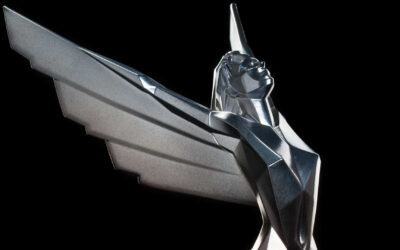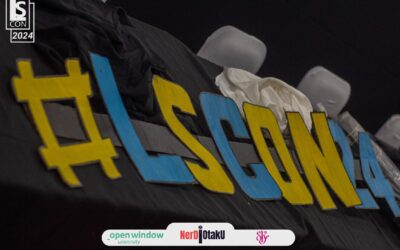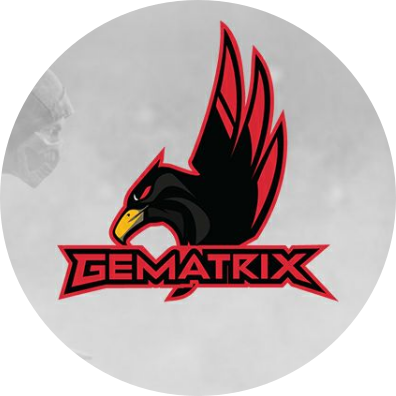THE RISE AND FALL OF GAMELOFT
A Microcosm of Mobile Gaming's Evolution
The story of Gameloft, once a titan in the mobile gaming industry, is a fascinating reflection of the broader rise and fall—and subsequent resurgence—of mobile gaming as a whole. From its early dominance in the 2000s, to its struggles in the 2010s; Gameloft’s journey, mirrors the shifting tides of technology, consumer behavior, and industry competition. This article explores Gameloft’s trajectory, and how it parallels the evolution of mobile gaming.
The Rise of Gameloft: Pioneering Mobile Gaming
Founded in 1999 by Michel Guillemot, Gameloft emerged as a subsidiary of Ubisoft, one of the most prominent video game publishers in the world. At a time when mobile gaming was still in its infancy, Gameloft positioned itself as a leader in the space. It capitalized on the rapid adoption of mobile phones, and the growing demand for portable entertainment.
Gameloft’s early success was built on its ability to adapt popular console and PC gaming franchises into mobile-friendly formats. Games like Asphalt, Dungeon Hunter, and Modern Combat became household names, offering console-like experiences on devices with limited hardware capabilities. The company also leveraged partnerships with major brands, creating mobile versions of franchises like Prince of Persia, Spider-Man, and The Adventures of Tintin.
During the 2000s, Gameloft thrived by targeting feature phones, which dominated the market before the advent of smartphones. Gameloft games were preloaded on devices by manufacturers like Nokia and Sony Ericsson; giving the company a massive reach. By 2010, Gameloft had become one of the most successful mobile gaming companies in the world with millions of downloads and a presence in over 100 countries.
The Fall of Gameloft: Struggling to Adapt
The rise of smartphones, particularly Apple’s iPhone, and devices running Google’s Android operating system, marked a turning point for the mobile gaming industry—and for Gameloft. While the company initially adapted well to the new platform, it soon faced challenges that would ultimately lead to its decline.
🎮 The Freemium Model and Monetisation Struggles
The introduction of app stores and the freemium model revolutionized mobile gaming. Games like Angry Birds and Candy Crush Saga offered free downloads with in-app purchases, a model that quickly became the industry standard. Gameloft, however, struggled to fully embrace this shift. While it eventually adopted freemium mechanics, its premium pricing for many titles alienated cost-conscious consumers.
🎮 Increased Competition
The barrier to entry for mobile game development lowered significantly with the rise of app stores. Independent developers and smaller studios began flooding the market with innovative and niche games, overshadowing Gameloft’s more traditional offerings. Companies like Supercell (Clash of Clans) and King (Candy Crush Saga) dominated the charts, leaving Gameloft struggling to maintain its relevance.
🎮 Quality and Innovation Stagnation
Gameloft’s reliance on established formulas and franchises led to a perception that its games were becoming repetitive and uninspired. While its early titles were groundbreaking for their time, the company failed to innovate at the same pace as its competitors. This stagnation hurt its reputation among gamers.
🎮 Corporate Changes
In 2016, Vivendi, a French media conglomerate, acquired Gameloft after a hostile takeover. This marked the end of the Guillemot family’s control over the company. The acquisition led to internal restructuring, studio closures, and layoffs; further weakening Gameloft’s position in the market. A letter was sent out to Gameloft employees after the acquisition, detailing Vivendi’s vision and next steps for the company. You can read the full letter here.
The Fall and Rise of Mobile Gaming
Gameloft’s struggles were emblematic of broader challenges faced by the mobile gaming industry during the 2010s. As the market matured, it became increasingly difficult for traditional players to compete with agile startups and tech giants. However, the industry as a whole experienced a renaissance, driven by several key trends:
🎮 The Emergence of Hyper-Casual Games
Hyper-casual games, characterized by simple mechanics and short play sessions, became a dominant force in the late 2010s. Titles like Flappy Bird and Helix Jump demonstrated that less could be more, appealing to a broad audience and generating massive revenue through ads.
🎮 The Rise of Esports and Competitive Gaming
Games like PUBG Mobile and Garena Free Fire brought competitive gaming to mobile devices, attracting millions of players, and creating new opportunities for monetization through in-game purchases and sponsorships.
🎮 Cloud Gaming and Cross-Platform Play
Advances in cloud technology enabled high-quality gaming experiences on mobile devices, blurring the lines between consoles, PCs, and smartphones. Games like Fortnite and Call of Duty: Mobile embraced cross-platform play; further expanding their reach.
🎮 The Impact of COVID-19
The pandemic accelerated the growth of mobile gaming, as people turned to their devices for entertainment during lockdown. This period saw record-breaking revenues and user engagement, solidifying mobile gaming as a cornerstone of the global entertainment industry.
Gameloft's Comeback?
Gameloft’s attempted comeback in recent years has been marked by strategic shifts in its business model, game development, and monetization strategies. While the company has faced significant challenges, it has also made notable strides in adapting to the modern mobile gaming landscape. Below, I’ll provide more details and data to support Gameloft’s efforts to regain its footing.
In recent years, Gameloft has sought to reinvent itself, leveraging its legacy while embracing new trends. The company has shifted its focus to free-to-play games with live-service elements, such as Asphalt: Legends Unite and Disney Magic Kingdoms. It has also explored new genres, including narrative-driven games like The Oregon Trail and Lego Star Wars: Castaways.
Asphalt 9: Legends has contribute significantly to Gameloft’s resurgence. As of June 11, 2023, Asphalt 9: Legends, along with Need for Speed and Hill Climb Racing 2, were among the elading racing mobile games on Google Play in the Philippines, each surpassing 100 million downloads.
– Christy Balita
While Gameloft may never regain its former dominance, it remains a significant player in the mobile gaming landscape. Its ability to adapt and evolve will determine whether it can carve out a sustainable niche in an increasingly competitive market.
A Reflection of The Industry
Gameloft’s rise and fall is a microcosm of the mobile gaming industry’s broader trajectory. From its early days as a pioneer to its struggles with innovation and competition, the company’s story highlights the challenges and opportunities inherent in this dynamic sector. As mobile gaming continues to evolve, driven by technological advancements and changing consumer preferences, the lessons learned from Gameloft’s journey will remain relevant for years to come.
The fall and rise of mobile gaming and Gameloft’s place within it demonstrates that in an industry defined by rapid change, adaptability is the key to survival. Whether Gameloft can fully rise again remains to be seen, but its legacy as a trailblazer in mobile gaming is undeniable.
Read More Of Our Stuff
Ten Years of The Video Game Awards
The medium of film or motion pictures has existed for just over 100 years now. 50 years in, they had already established a canon, and a set of values or expectations that creators and the audience had become accustomed to. A substantial contributing factor to the established canon of film was the implementation of the Academy of Motion Picture Arts and Sciences Awards, also known as the Oscars.
Best Media of 2024: Nerd|Otaku Writers’ Choice
From Arcane to Fallout, Black Myth Wukong to Marvel Rivals, The Substance to Anora; 2024, no doubt, has been a big year for film, TV, novels, video games, and music. We, the writers of Nerd|Otaku, had a long discussion on what our favorite media from this year was.
The 20/24 Experience: LsCon Edition
It’s been almost two months since Lscon, and I’m still reeling over what was possibly the biggest nerd event I have been to.









